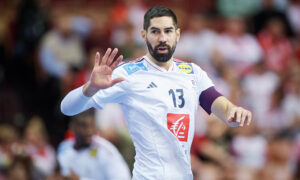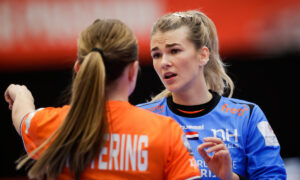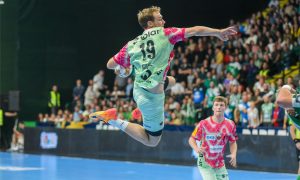The Future of Handball: Michael Wiederer on Expansion, Global Reach, and Evolving Challenges
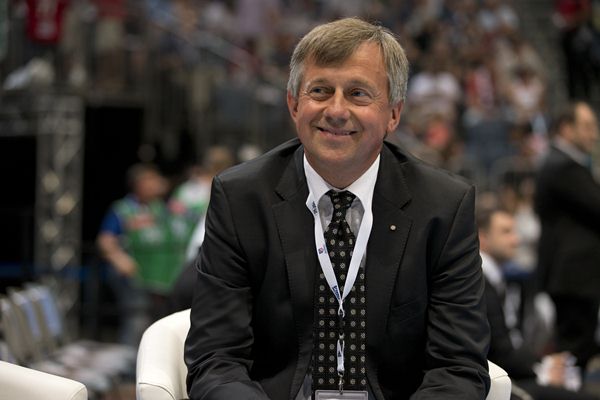
Handball faces years of challenges and constant positioning in the global sports market. In a world that is constantly changing, our sport cannot remain within set boundaries without constantly reassessing what could be better.. Some of the questions that interest the handball public were directed to the president of the European Handball Federation, Michael Wiederer, who shared his thoughts on the future of our sport in an exclusive interview with Handball-Planet.com.
EHF Competition conference will be held in Vienna on April 9 and 10. What are the reasons for its organization, and what do you expect from it?
- Since 1994, we have been organizing activities at both the national team and club level. Our first Champions League featured two groups with four teams, alongside a qualification round. Over the years, we have developed significantly in parallel with the establishment of the EURO 1994 in Portugal and Germany. Step by step, we grew, however the Year 2008 marked a change. It was a period marked a time when some teams were discussing the potential for a breakaway league, and several leagues were speaking about limiting the importance of national teams in order to provide more space for their competition. In response to these challenges, we organized a competition conference involving various stakeholders from top clubs, leagues, federations, and our technicians. After all, our own people must understand the perspectives from all corners. My opinion is that the EHF must stay in the middle. Voices from every corner must be heard, with each stakeholder providing insight into what should be done. While they have valid points, our position is to unify these perspectives. I tend to see it as a cooking analogy: a skilled cook gathers a variety of spices and ingredients to create a great dish. If done correctly, everyone can enjoy it. Our job is to be good cooks, collecting all the ingredients from our stakeholders.
Today, we are not in such a critical situation; the EHF EUROs have developed very well, and we are proud of the young age categories events. We’ve seen players move on to the senior national teams who have already played 100 matches at the highest youth level, leading to an increase in the quality of the game. Event production has also evolved significantly. For instance, I remember the 2000 final match between FC Barcelona and THW Kiel, which was broadcast only on Catalan TV, with the away match not even shown in Germany, while home match was broadcasted for only 20 minutes. It was a big discussion about that. Nowadays, we ensure coverage of all matches across various channels in Europe and outside Europe. Crisis is not a reason for this competition conference. Much more, we feel a responsibility to look toward the future. That is why we named it “European Handball Future” (instead of “Federation”); we want to discuss ongoing developments. The media market is changing, with increasing fragmentation between public channels and digital media. The marketing landscape is also evolving due to global business situations. If we want to define our future, we must start somewhere, and logically, this begins with our competition systems.
There are certainly things you would have liked to change during your time in handball but were unable to. If you had a magic wand, what would you change first in handball today?
- If I could I would change our influence of European handball in international handball. Currently, whatever is done in terms of rules and regulations, all that either has to come from Europe or we have to implement things in which we weren’t even involved. The influence in the future must grow in general. We need to improve the environment and identification with the fans, as seen in Cologne, and for women’s handball in Budapest. People appreciate high-quality events. We can’t focus only on technical things if there was three or three and a quarter of steps, but we have to see what is interesting for the fans.
People often say that we can’t consider handball a global sport without a serious daily-handball life on the markets like the USA and China? Are there anything EHF can do it as a part of global handball community?
- I see two options: either we cooperate with the IHF to manage something in China, India, South America, USA and the northern part of Africa or if we can’t manage, we must strengthen our own continent even more.
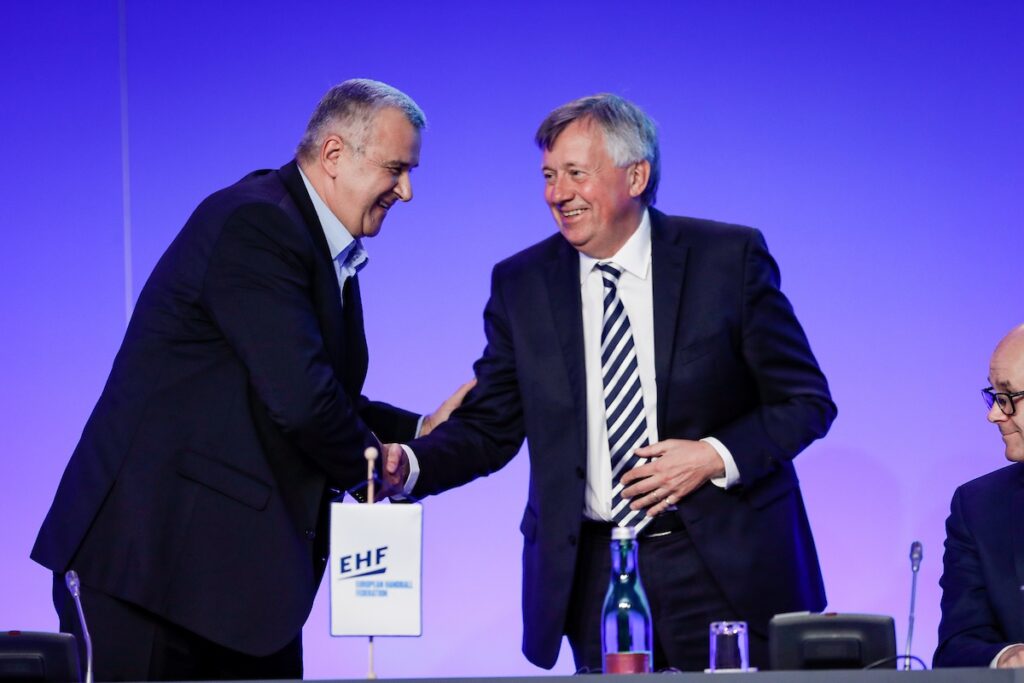 Although various TOP events are very well organized, it feels like handball has been stuck between Herning and Cologne in recent years. Can this be considered as a weakness or challenge for you? Which markets do you see as having the greatest potential for growth?
Although various TOP events are very well organized, it feels like handball has been stuck between Herning and Cologne in recent years. Can this be considered as a weakness or challenge for you? Which markets do you see as having the greatest potential for growth?
- You are absolutely correct concerning venues and interests. There is financial reasons, but we also need full venues. As a sport, we suffer, the opposite of football, because good sports halls are often not owned by handball organizations. This dependence means we must rely on various nations to offer venues for activities. For example, I was in Zagreb for several players farewell ceremony after the EHF Qualifier between Croatia and the Czech Republic, where there were 15,000 fans. It shows that quality events can happen in different regions of Europe.
It will be the EHF’s task to work with organizers, as we need their collaboration. It’s critical to generate interest; for example, people might pay a considerable amount for a concert, but are often reluctant to pay even a small fee to watch top-level sports. There are certain markets we would like to strengthen, and this is for sure typical sports markets like Great Britain, Italy, and Turkey. However, for this, we also need the strong work of the Federation and the clubs. Without them, we can’t create interest.
As the EHF, we invest a lot in mid-range and emerging nations to help them grow. Increasing the number of teams in the EURO on 24 teams, was an important step. For instance, before 2020, national teams like the Faroe Islands had almost no chance to qualify; now they play a valuable role in European handball. It probably won’t bring a lot of income to the TV market, but there are thousands of enthusiastic fans who play an important role in European handball. We need to elevate more countries to a stronger competition level to increase the overall value of the sport.
Despite the issues surrounding the quarterfinal match of the EHF Cup between Partizan and AEK, do you believe that handball should look for opportunities to expand its fan base by partnering with major sports/football clubs that have millions of fans? Basketball has successfully managed to incorporate teams and brands from Spain, Greece, Turkey, Serbia, Germany, etc.
- You are right, but I would like to summarize this Partizan-AEK story in one sentence. This is exactly what we don’t need. I mean, 20-25 years ago, we had more problems at that level, and we managed to get the clubs to understand that it is not in their or our interest to look back into the past. It must have consequences, and legal institutions will take decisions on what exactly needs to happen, but I am very much in favor of sending clear signals that we don’t expect such behavior. I don’t want to hide it. With the leagues and the Federations, we are in regular contact with big football clubs. A couple of years ago, we established contact. These big clubs already have an existing professional structure, and we can see that Portuguese handball has taken advantage of that with three football clubs producing handball teams. At times, we have to live with the downsides of that, but it really requires effort to make people understand that this is not the right place for hooliganism.
In the wealthiest European country, Norway, which has Olympic champions, it happened that the three-time EHF Champions League winner Vipers went bankrupt, and the men’s project Kolstad is facing major financial problems. Is this a problem of the Norwegian sports system, or does it have to do with handball as a product?
– Unfortunately, this is part of the development we are seeing in various sports right now. Top clubs are very focused on their chances and ambitions, and the financing is not grounded with this amount. If a small club loses a small amount of money, it doesn’t break the club, but with such amounts, it does. Plus, the national federation has real responsibilities regarding the club; they speak the same language and have much more possibilities to analyze the club. We get clubs for the Champions League in the middle of June, and immediately we have to make a decision on who can play—it’s almost no time to assess the liquidity of the club. North Macedonia is a good example; there are three clubs on a similar level, and we don’t know who will be first. We can’t check the background regarding the economic situation. There are cultural understandings and language barriers, and we are very much dependent on national federations. We will definitely develop a better control system, but together with national federations.
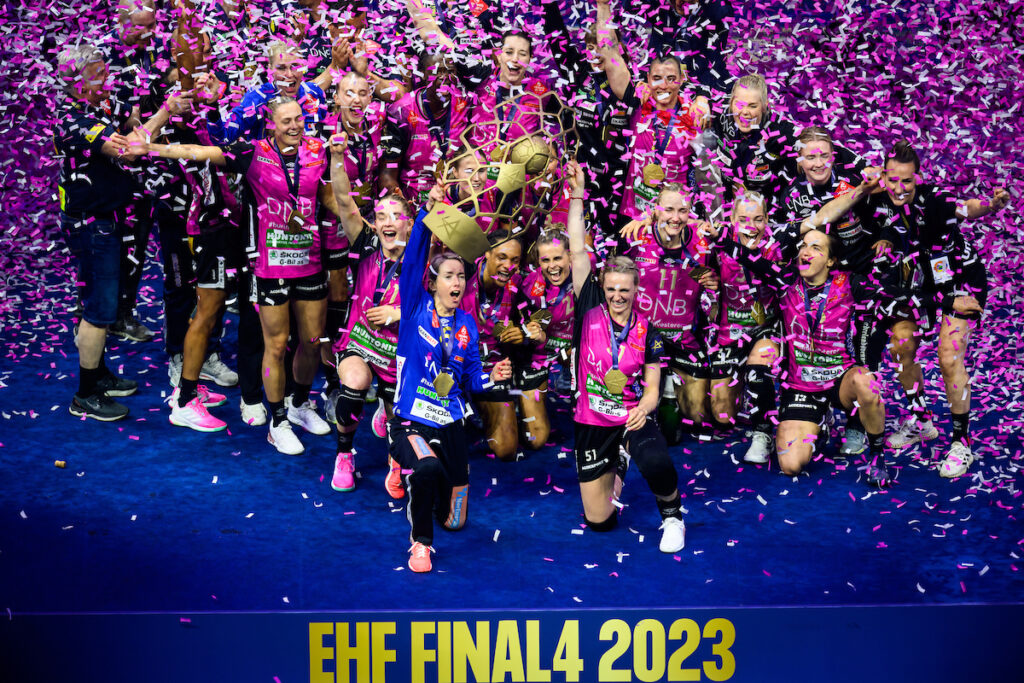
Team Vipers Kristiansand, Vipers Kristiansand vs FTC-Rail Cargo Hungaria, EHF FINAL4 Women 2023, MVM Dome, Budapest, Hungary, 04.06.2023, Mandatory Credit © Sasa Pahic Szabo / kolektiff
Unfortunately, beach handball didn’t make it to become an Olympic sport, despite the belief that it could in Paris 2024 or Los Angeles 2028. Volleyball successfully introduced its beach version, which is for a long time well integrated into the Olympic program. On the other hand, basketball succeeded with its 3×3 version. Is it time for handball to introduce a “shortened” version to appeal to the “TikTok generation”?
It’s not a question but more of a statement, I could have said the same as you did. When it comes to team sports, it’s important to say that we have excellent cooperation with other team sports because, as research has proven, handball fans are also fans of other sports, and there is no direct competition. We even exchange information. Different sports indeed have different advantages and disadvantages. For example, establishing handball in England is too complex because they just built sports halls that are only 36×18 meters, so basketball can be played there, and volleyball can be played, but we have problems. There are several challenges in the background. Overall, the spirit of handball remains strong—it’s a tough sport, but if you watch the players, a lot has changed in the last 20 years. Players of different nationalities play in different clubs, and they meet each other, both in clubs and on the national team level. Because of this mix, we have a fair play situation. People like to see players fighting hard but also appreciating their opponents, and that’s positive. What we really suffered from was that beach handball didn’t make it to the Olympic Games. This is unfortunately beyond our reach, but I must say that we managed to get it into the European Games and several other side competitions. Unfortunately, we don’t have an alternative at the moment. If you see the list of topics to be discussed at the competition conference, there is a special breakout where people go through various alternative sports forms to bring something to the market that at least has a chance.
Every morning when we wake up, we are bombarded with NBA analysis telling us how many triple-doubles Nikola Jokić has had or what LeBron James has done. As a handball journalist who has been following the EHF Champions League for 20 years, I still don’t know exactly how many matches Nikola Karabatić has played in the competition or how many goals Filip Jicha has scored from seven-meters. Before and after each of these stats, there’s a story. That’s what we need to engage people more, and we are falling behind…
– Could be my words as well. Our efforts in the digital world have paid off. There are many more clients following us, reading articles with athletes, and checking statistics. Unfortunately, the feed of statistics is complex. I’m pretty sure all European sports are not on the same level as American sports. They invest a lot in that, and I would like to see the same in Europe. However, it’s a long way to go—not only technically but also logistically demanding. We have to keep working on it.
Unofficially, it’s been rumored that the Men’s EHF Champions League will expand to 24 clubs. How do you see the future of the best club’s handball product?
– This initiative for expansion comes from the EHF side. Top clubs like to play against each other, while smaller clubs say they have no chance to develop if they don’t play against the top clubs. It’s a typical situation. One of the main reasons for competition conference is to create a platform where people can discuss and listen to each other. It’s impossible for someone to calls from one corner, and then we answer, and someone else calls from another corner. We need to bring them together, and yes, the expansion of the Men’s EHF Champions League is a possible first step. And on May 13, we will have the Women’s competition conference, where we’ll discuss exactly the same topics for women’s competition, including future developments. The main topics will be the competition system for the clubs, not just for the Champions League, but there are trends for expansion, though not for 2025/2026—that’s not realistic. I think we have achieved something in our sport that basketball has not managed so far: to involve the clubs but at the same time manage national teams and leagues. The discussion process with clubs is excellent, and we are going in the right direction, finding solutions that everyone can live with. I must also say that for the region, we have a big responsibility to protect different areas in Europe. For example, the Balkan region has a long tradition in handball, and we must ensure that enthusiasm for the sport continues there. I would like to see a top-level team from Serbia. We’re not there yet, but we’ve had complicated years with Zagreb, and now they’re back on a level that makes sense for competition. We had a similar fight in North Macedonia with Metalurg and Vardar, and now there’s a new situation we have to go through. Unfortunately, we lost Celje—it was a good club, well organized, and a great partner. Hopefully, the men’s cklub will be back. In Montenegro, we don’t currently see any men’s clubs; Cetinje is far from that. We need the region because of the interest and quality. We have to protect this region, but also others. Our responsibility is to create solutions, to motivate people and push them a little bit – concluded Wiederer.

